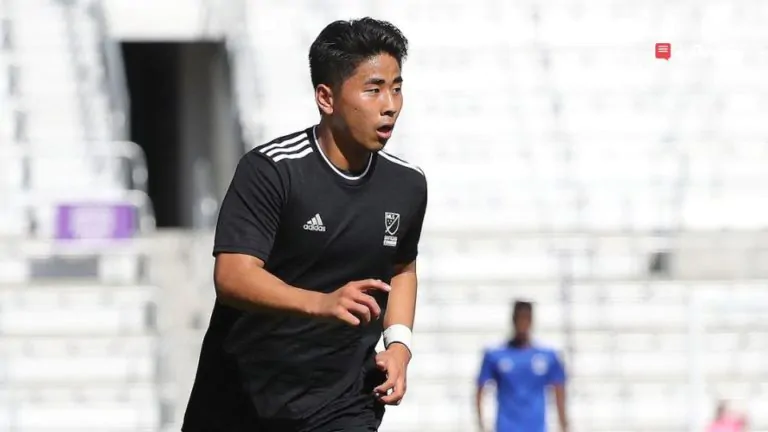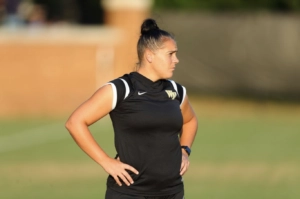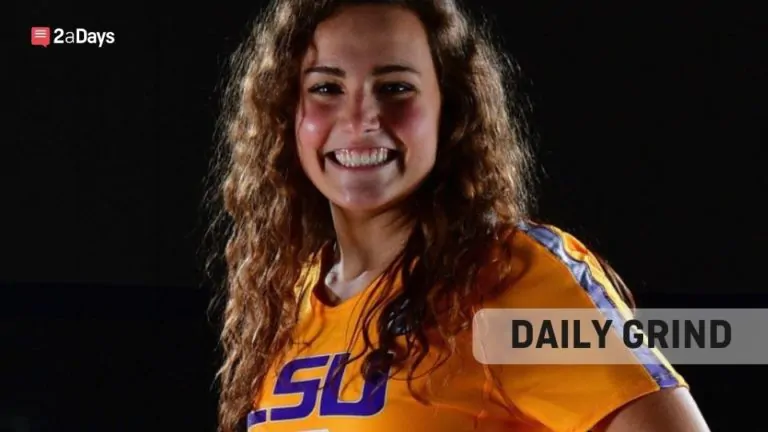Zach Reget, a 24-year-old professional soccer player, recently finished his first full season playing for the St. Louis Ambush. He ended the 2018-19 year with 22 goals and ten assists in 24 games and earned Rookie of the Year for the Major Arena Soccer League.
Reget played college soccer for Trinity International University, an NAIA school. Reget was a starter and earned CCAC All-Region Team, as well as Offensive Player of the Year all four of his seasons. He earned TIU's team MVP three times, CCAC first-team selection twice, NCCAA All-Midwest first team and NCCAA All-American once. Reget took some time during the off-season to provide advice for athletes seeking to better themselves on and off the field.
What is an off-season tip you have for current athletes to improve their game?
For athletes that are really trying to grow and get better, I would say that there really is no off-season. Off-season is a time where you try to perfect your craft, and in-season is where you get to demonstrate that. So, the -offseason is one of the most important things for athletes.
What is the significant difference between college and pro-ball?
I would say the preparation and the professionalism you have to show 24/7. The higher the level you play at, the more wear and tear you have on your body, so nutrition is key. Your body is your income at the professional level, so you need to make sure you're investing in your body.
Was the transition harder from high school to college or college to professional soccer?
For me, personally, high school to college was harder. I grew up pretty late, so getting used to the physical battle freshman year was a challenge. My body was more in tune when I transitioned from college to the pro level, so that transition was slightly more natural.
What is the best piece of information you have gathered along your athletic journey?
Growing up, I played soccer for the sheer passion of the game. Entering college, I went to a religious school – Trinity International University – and I learned how to look at soccer as a way of worship, instead of simply a game. I found once I treated soccer as a way of life, I was able to control the highs and lows of the sport far easier. At the same time, viewing soccer through this religious lens has also helped me realize there is more to life than the sport.
What advice can you give to a college athlete who is looking to get off the bench?
Put more work in than the guy ahead of you, by a lot. You need to be hungry, and if you're the guy on the bench, you need to be ten times hungrier than the guy that is playing in front of you. If you're playing, you need to be hungrier than the guys behind you. If you're on the bench, go to your coach and find out what areas you need to improve upon. Ask for drills, but don't nag him. Get the information and then do the work on your own.
What is the best piece of advice that you can offer to an athlete who is not connecting with a coach?
Try to be active each day and get out of your comfort zone. Often-times, athletes will lack confidence, and the coach will see that, so, get out of your own way and be confident in yourself as an athlete.
What are the do's and don'ts of social media as far as high school athletes are concerned?
Don't post (jokingly says it). Be sure that you have a clean social media. If you are about to post and have to ask yourself whether it is clean enough, it probably isn't. Don't give an opportunity for a coach not to take you.
How can a high school athlete get on a coach's radar, and when should they reach out to a coach?
Reach out to coaches as soon as possible. Be sure to brand yourself as an athlete. The top athletes brand early, even as a freshman in high school. For soccer, the way you stand out is by being a good player and always being proactive.
What is the one piece of advice do you wish you could tell your high school self?
Brand more. Also, take the nutrition side way more seriously. Even though you may be young, if you train the way you would in college/pro, you'll stand out far more in high school than you would otherwise. Very few high school athletes focus on nutrition, so in doing so, you'll be giving yourself a leg up on your competition.
Do you have a specific pregame routine or ritual?
It has varied across high school, college, and professional soccer simply due to the resources at my disposal. The common denominator I have carried with me is showing up to practices and games early, giving myself the necessary time to prepare my body and mind. Since college, I now read my devotional book to calm myself before a game. For an athlete who is not only good but great, they will live by a set routine. My advice to any athlete is to find a routine and stick with it. You can always add more to the routine, but be sure to have one.
What were you looking for in a college program?
I had a good high school career, so I was looking to play for a big-time university. I'm happy that wasn't what happened, as I ended up playing in NAIA. Prior to choosing to play for that level, all I was thinking was D1, D1, D1. I didn't realize the vast opportunities that were available outside of D1, but I am thankful I went down the path I did.
What are the dos and don'ts of going on an official visit?
Talk less and let the coach do the talking. You'll never know exactly what the school/program will have to offer, so listen first and ask your questions at the end.
What're the most goals you have scored in a game?
Four goals in high school. I had a game-timing goal, and a game-winning goal in the same game for my professional team – St. Louis Ambush – and that was probably the highlight of my career thus far.
What's the funniest thing that has happened to you or a teammate during a game?
I play indoors and have a rookie goalie. The ball doesn't leave the field of play a lot, so if you shoot, the ball will stay in. During practice, someone took a rocket shot off of the wall, the goalie turned, and the ball smacked him right in the face. Initially, everyone was concerned because he was an outstanding goalie, and we didn't want to see him hurt. But he got up just fine, and at that moment, the entire team busted out laughing.
Edited by Caroline Kurdej and Jaime Evers
* Originally published on December 9, 2019, by Joe Pounders







